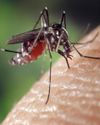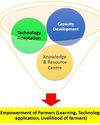Leopard's attacks on humans have been a serious issue in Uttarakhand, India for many decades.

Not a single month goes by without newspaper headline about leopard or a tiger attacks on humans in Uttarakhand. Wildlife experts have attributed that gradual encroachment of forest and decline prays sizes are main cause of increasing human-animal conflicts in the state. Reports of human encounters with leopards and other wild species with human are a regular feature in the mountain state that is home to several wildlife reserves. The rate of human-animal conflict cases in Uttarakhand is the highest in the country. The seriousness of the menace can be gauged from the fact that leopards have been killed over 600 people and another over 3,100 people had injured in the last 17 years in Uttarakhand. According to Hindustan times, Dehradun issue June 13, 2018 on basis of state forest officials, 182 big cats, including 166 leopards and 16 tigers, as has been declared as man-eaters since the last 15 years after the formation of Uttarakhand in 2000. According to the Wildlife Protection Society of India (WPSI), more than 28 leopards lost their lives, highest number in Uttarakhand, taking the toll to 288 half of this year in country. “Man-eating” has been made infamous by renowned hunter turned naturalists like Jim Corbett (1944) after the two extreme Leopard human conflict cases occurred in British India. The first leopard, "the Leopard of Rudraprayag", known as a male maneater, killed more than 125 people in Uttarakhand and the second, the "Panar Leopard", was believed to have killed more than 400 people in Madhya Pradesh. Both were killed by hunter cum conservationist Jim Corbett.
This story is from the July-August 2018 edition of Scientific India.
Start your 7-day Magzter GOLD free trial to access thousands of curated premium stories, and 9,000+ magazines and newspapers.
Already a subscriber ? Sign In
This story is from the July-August 2018 edition of Scientific India.
Start your 7-day Magzter GOLD free trial to access thousands of curated premium stories, and 9,000+ magazines and newspapers.
Already a subscriber? Sign In

An insight into Chandipura virus in India
Recently lot of news regarding disease due to Chandipura virus has emerged in various newspapers/magazines. After reading the reports published it seems that thing is still brewing in the natures nest and it could affect mankind.

Why elephants never forget?
An elephant has a very large brain for its size and the 'temporal lobe' region responsible for memory is more developed with a greater number of folds - this results in powerful abilities to 'download' important survival data such as where to find food and water, and who is friend or foe.

Use of Algae for Wastewater Treatment Containing Heavy Metals
Wastewater treatment is a critical environmental issue particularly when it comes to the removal of heavy metals.

Nano priming Seeds: A Small Innovation Sparkling Big Advances in Germination
Nanopriming is an emerging agricultural technique where the seeds are treated with nanoparticles to improve their germination, growth, and overall performance.

Nobel Laureates in Physics 2024: Revolutionizing AlThe Physics Foundations Behind Machine Learning
This year's two Nobel Laureates in Physics have used tools from physics to develop methods that are the foundation of today's powerful machine learning.

Revolutionizing Biology: The 2024 Nobel Prize in Chemistry Celebrates Breakthroughs in Protein Design and Structure Prediction
The Nobel Prize in Chemistry 2024 is about proteins, life's ingenious chemical tools.

New findings on animal viruses with potential to infect humans
Scientists investigating animal viruses with potential to infect humans have identified a critical protein that could enable spillover of a family of organisms called arteriviruses.

Father-Daughter Team Decodes Mars' Alien Signal
There is no definitive answer to whether aliens exist, but there is a lot of work being done to find out:

Krishi Vigyan Kendras: Working for Farmer's Welfare
Krishi Vigyan Kendras (Farm Science Centres) are the District level institution serving as an agriculture knowledge resource & capacity development centre which plays indispensable role in front line extension regarding agriculture system in scientific way.

Sixth generation Computer: The future computing technology
We are in a transition towards a digital world, where everything will be dealt with in digital format.